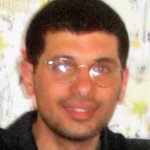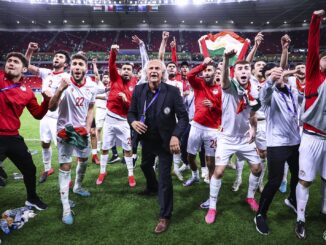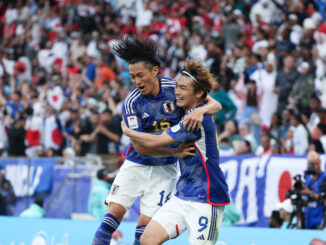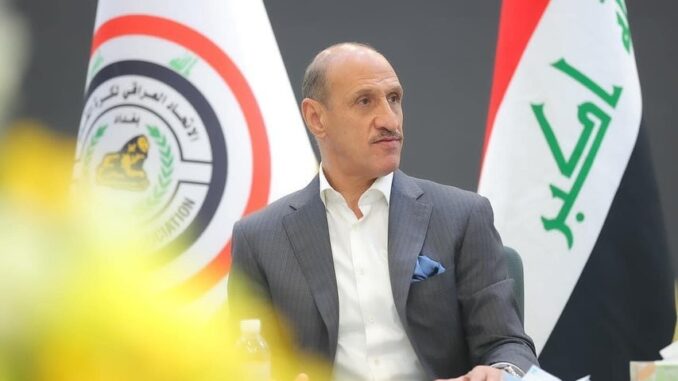
Former Asian Cup winners Iraq arrive in Doha at the start of a new era, driven by the vision of its FA president, Adnan Dirjal, the man who finally brought down Iraq’s post-war FA dynasty built by his former teammate, Hussein Saeed.
Thirty years after managing his country in the final round of the 1994 World Cup qualifiers in Qatar, Dirjal is looking to put his country back in the upper echelons of Asian football.
It has been a long road for the rehabilitation of the former Iraqi captain.
The former international has had a complicated relationship with Iraq after the fall of Saddam’s regime, often perceived as part of Saddam’s son Uday’s inner circle.
There was also the incident In 1991 while Dirjal was coaching Al-Karkh, where he reportedly pulled out a gun in a league game against Al-Minaa in Basra and began to shoot in the air to disperse the home crowd after his team had been awarded a contentious penalty.
The coach, along with the security forces, fired into the air in a game which ended in several casualties to local fans. Dirjal has denied the allegations.
Not many know that on the eve of the 2007 Asian Cup, Dirjal, then coaching in Qatar at Al Wakrah, was offered the Iraq job, before the FA opted for Jorvan Vieira. A few years later, his name reappeared again. Still, several FA members objected to what was described “as political and personal,” with Dirjal having been seen by many as having close connections to the fallen regime.
Dirjal had been one of Iraq’s best defenders of the 1970s and 80s, and one of the first players Saddam’s son Uday had ‘signed’ for Al-Rasheed after their promotion to the Iraqi First Division in 1984.
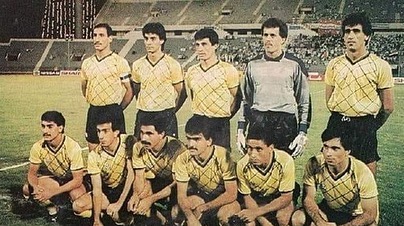
He later became captain of Al-Rasheed and one of the club’s longest-serving players, winning three league titles.
Playing in three Olympic Games and a record five Gulf Cups, with 124 caps for Iraq, his international career ended on a sour note at the controversial 1990 Gulf Cup in Kuwait, where he was sent off for assaulting a Finnish referee after Iraq conceded a penalty against UAE.
Iraq’s FA president Uday Saddam Hussein ordered Iraq’s delegation to withdraw from the competition if Dirjal’s red card was not rescinded and the game was not replayed, which it wasn’t, and the Iraqi team returned to Baghdad.
Five months later, the defender was shockingly accused by the Kuwaitis of stealing two Gulf Cups from the Kuwait Football Association headquarters when Iraqi forces invaded the tiny Gulf state.
Dirjal was blacklisted by the Kuwaiti government and barred from entering the country, while several Kuwaiti professionals playing in Qatar refused to play for the coach while he was managing in Qatar.
However, it is worth noting that no actual charges were made against him after the fall of Saddam. His reputation as a bruising defender went before him and may have been used by the Kuwaitis as part of their propaganda war campaign to shift public opinion against the Iraqi regime after the invasion, like the incident with the ambassador’s daughter and the baby incubators bear witness.
In 2021, in Kuwait’s first international on Iraqi soil after the 1990 invasion, Dirjal, then Iraq’s Sports Minister, kicked off the game in Basra, completing his rehabilitation in the public eye.
The North Korea shame
After the 1991 Gulf War, Adnan Dirjal turned to coaching, trading in his yellow and black striped jersey and black shorts for a grey suit and tie on match days. The former captain and national hero was appointed to revive the Iraqi national team from the ashes of war.
He formed a formidable side which should have qualified for the 1994 World Cup finals in America but for an opening defeat to North Korea in the final qualifying stage in Doha.
Iraq were cruising at 2-0 but after the Dutch referee harshly sent off Iraq’s left-back, Dirjal’s team crumbled, conceding three goals in a 15-minute spell to lose the game 3-2. In disgust of the referee’s performance, Dirjal broke a chair and was later warned by FIFA’s World Cup organising committee for his future conduct. Ironically, the coach went on to open his own furniture store in Doha.
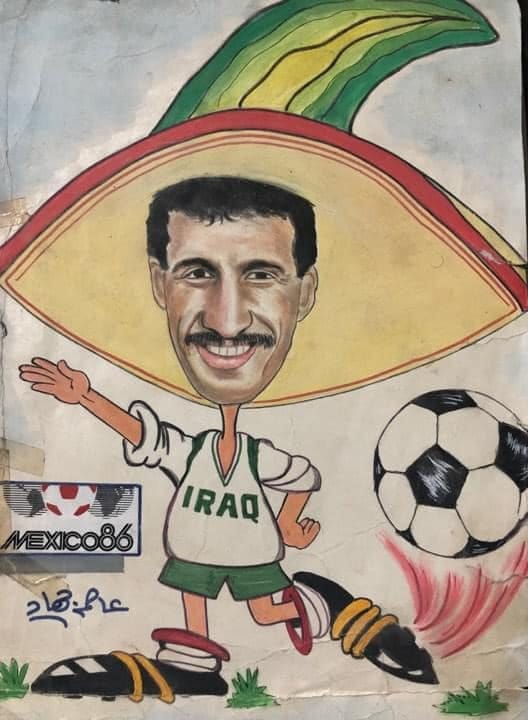
The coach had decided to take off a holding midfielder for a replacement left back, which ended in disaster as the North Koreans over-ran the middle of the park.
The FA, headed by Uday, the fans and the newspapers placed blame for the unexpected defeat firmly on the shoulders of the coach after his decision to take off a holding midfielder to bring on another left-back, instead of sacrificing an attacking player for a replacement defender to hold onto the lead.
He had wanted to take off forward Alaa Kadhim who had given Iraq a 2-0 lead, but after conferring with his assistant, and with the memory of Iraq’s 3-2 defeat to Kuwait in the Olympic qualifying play-off in 1980 whilst a player, when two-goal Nazar Ashraf was replaced with Iraq leading 2-0 in a game they eventually lost 3-2 after the striker was taken off, Adnan Dirjal took off the team’s midfield anchor.
The decision to substitute a holding midfielder for a left back would not only go down as the biggest regret in the coach’s coaching career, but was a blot which he is reminded of every single day of his life.
The next morning, the coach and his assistant were sacked. Dirjal returned to Baghdad and was imprisoned for ten days at Radwaniya for the defeat.
Life in Qatar
In 1995, Adnan Dirjal relocated to Doha, where he managed various top division clubs in the Qatari League, a vast amount of time spent at Al Wakrah, winning the Qatari Stars Cup in 2011.
After 23 years working in Qatar, Dirjal returned to Baghdad to stand for the Iraqi FA presidency in 2018, kicking off a series of court cases and legal wrangles after his nomination was declined, leading to incarceration of two Iraqi FA employees and eventually the Iraqi FA executive committee to resigning en-masse two years later, fearing further imprisonments, repercussions and long-term or lifelong suspensions.
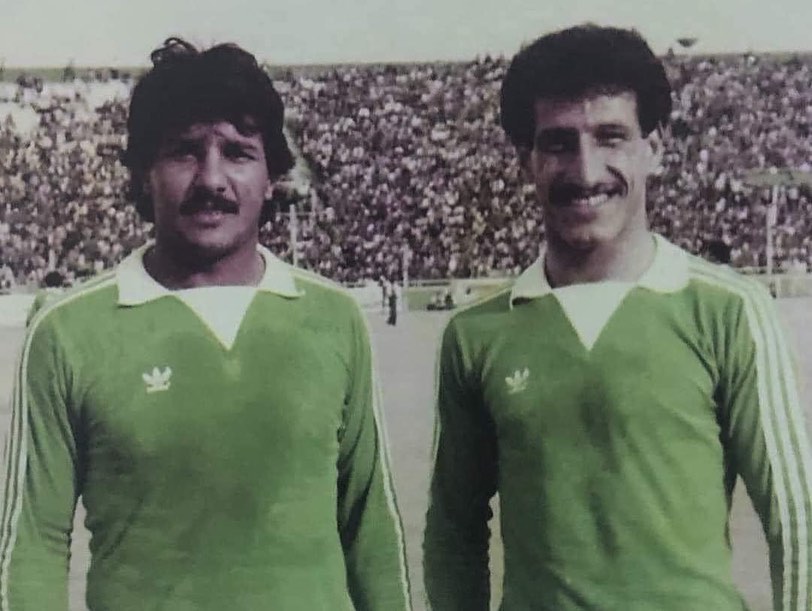
During this time, Dirjal was appointed Iraq’s Sports Minister, and a year later, he was elected Iraq’s FA president, with 2007 Asian Cup winner Younis Mahmoud as vice-president.
Adnan Dirjal’s ascension to the top job in Iraqi football meant the end of the post-2003 era set-up by his former international teammate and Uday’s right-hand man, Hussein Saeed, and the succeeding administrations headed by his aides Najih Humoud and Abdul-Khaliq Masoud.
Vision for Iraq
The return of Adnan Dirjal not only witnessed a change in personnel but also a change in philosophy in the way football in Iraq was being run and organised. The advancement of the game in the Middle East, especially in Qatar and Saudi Arabia, and the stagnation in Iraq over the past decades, have driven the ambitions of the Iraqi FA president.
This season has seen the introduction of Iraq’s new professional League, the Iraqi Stars League. While witnessing the development of football in Qatar, and the 2019 Asian Cup victory under Spaniard Félix Sánchez, Dirjal looked to La Liga and Spain for inspiration, signing a contract with the Spanish league and Luis Enrique’s former assistant, Jesús Casas.
In 2022, the Iraq FA president met with former Spanish FA president Luis Manuel Rubiales in Madrid, asking the ex-Xerez CD and Levante UD player for his opinion on Spanish coaches who could potentially supervise the Iraqi team. He came back with two names, Lucas Alcaraz and Jesús Casas.
Casas was the coach that intrigued the new Iraqi FA the most, a 49-year-old former assistant coach of Spain under Luis Enrique, who like Félix Sánchez had relatively little experience but came with a new outlook and ideas.
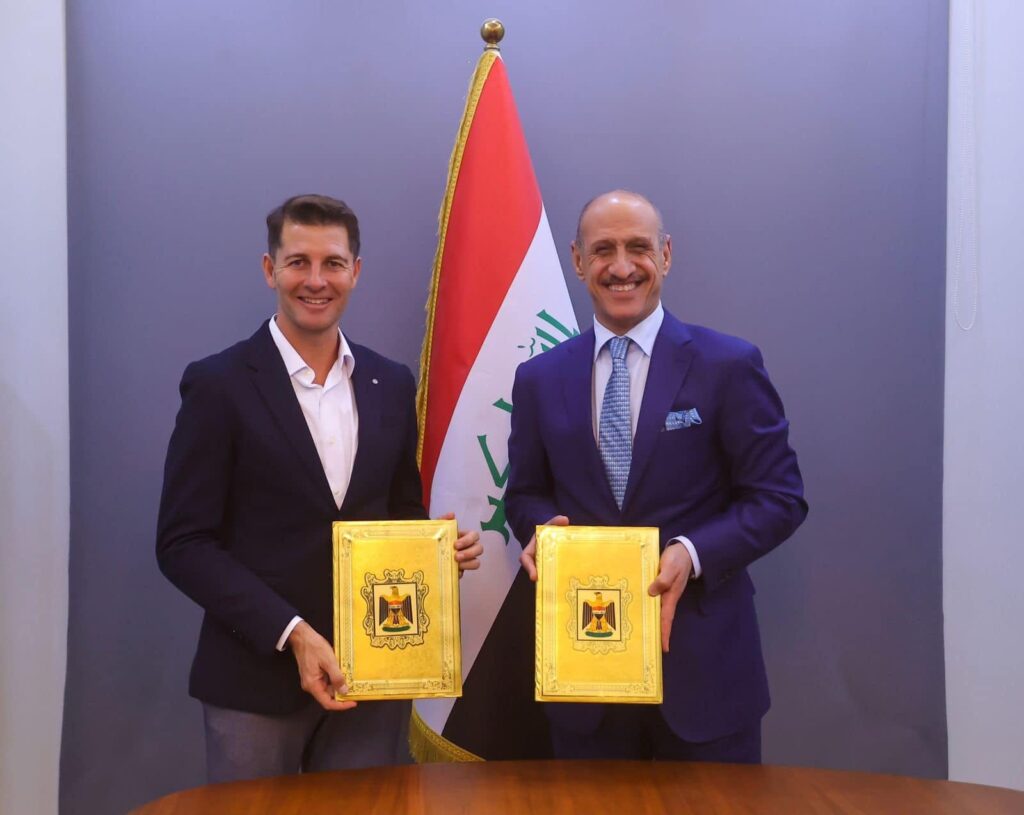
The Spaniard has had almost immediate success, and just two months into Casas’ four-year contract, the gaditano helped guide Iraq to its first Gulf Cup title in 35 years.
However, the 2026 World Cup in America is Iraq’s main target.
Dirjal’s greatest regret was never getting the opportunity to play in the World Cup. Just days before the 1986 World Cup, the defender suffered an injury and missed the finals.
He again failed to qualify for the 1994 World Cup as a coach, and now, as the president of the Iraqi FA, and under Casas, he is looking to achieve his dream of getting Iraq to its first World Cup in 40 years.
Iraq is changing and the new FA is looking to talent abroad to improve the national team after years of neglecting players of Iraqi origin around the world, known as the mughtarabeen or expatriates.
In the past, local talent was prioritised to market players in the Middle East, with reports the Iraqi FA took a cut of prospective contracts from agents and players, with some believing there was an unwritten quota on the number of expatriates in the Iraqi squad, as they rarely numbered more than four or five players in total.
However, the current team includes a Mancunian and a Scouser and a host of players born in Sweden, Denmark and Germany, which shows things are changing.
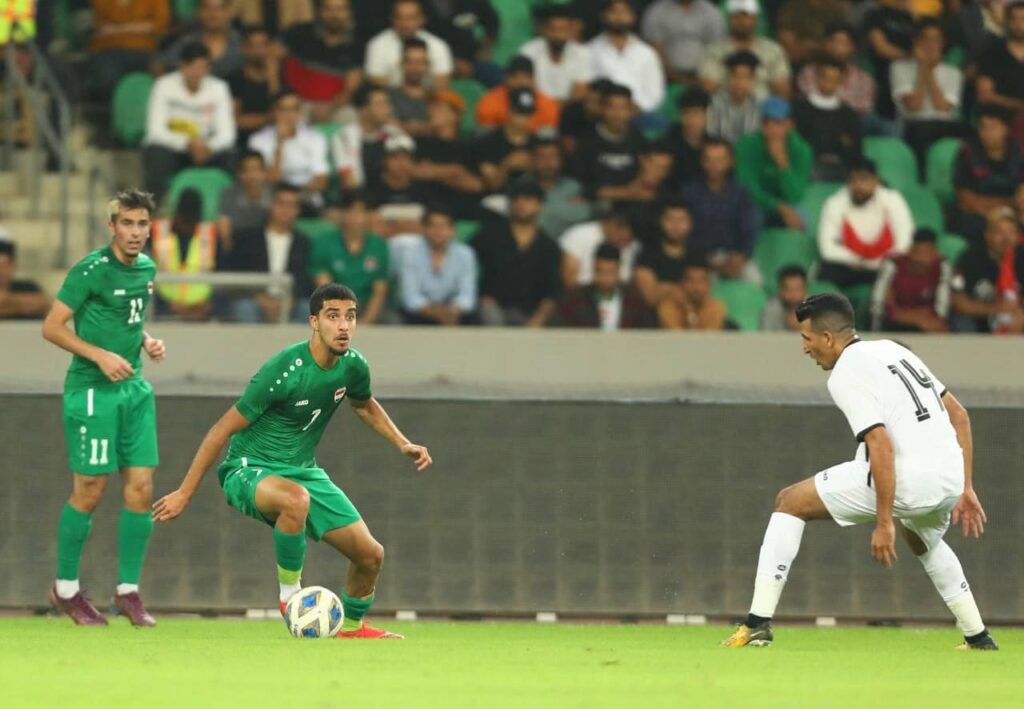
The movement to scout players of Iraqi origin around the world began over a decade ago by Kirkuk-born engineer Akam Qader. Since then, there has been an online movement led by the Iraqi Pro Players website, but up until recently, work was done outside of the Iraqi FA, until the administration of Dirjal changed its strategy and seriously looked to include players from Europe in the national team’s set-up at all levels.
So far, Casas has handed 12 expatriate players their debuts, the most recent being 18-year-old Swedish-born starlet Montader Madjed, while in the 15 internationals under the Spaniard, a record 22 expatriate players have been used, compared to 23 players over the last decade. Fifty percent of Iraq’s 26-man Asian Cup squad is formed of expatriates, highlighting the rapid change under Casas and Dirjal.
Players like Ali Al-Hamadi and Zidane Iqbal are expected to play a big role in the future of the Lions of Mesopotamia and the 2023 Asian Cup symbolises the beginning of Iraq’s real first post-war administration and a new dawn for the game in Iraq.
Hassanin Mubarak is the author of ‘Far From War and Politics: The story of Iraq’s 2007 Asian Cup victory‘. Buy your copy today from Amazon.
Photo: IG/official.adnandarjal
Listen to The Asian Game Podcast as Hassanin Mubarak joins us to discuss Iraq and their chances of success at the AFC Asian Cup 2023

